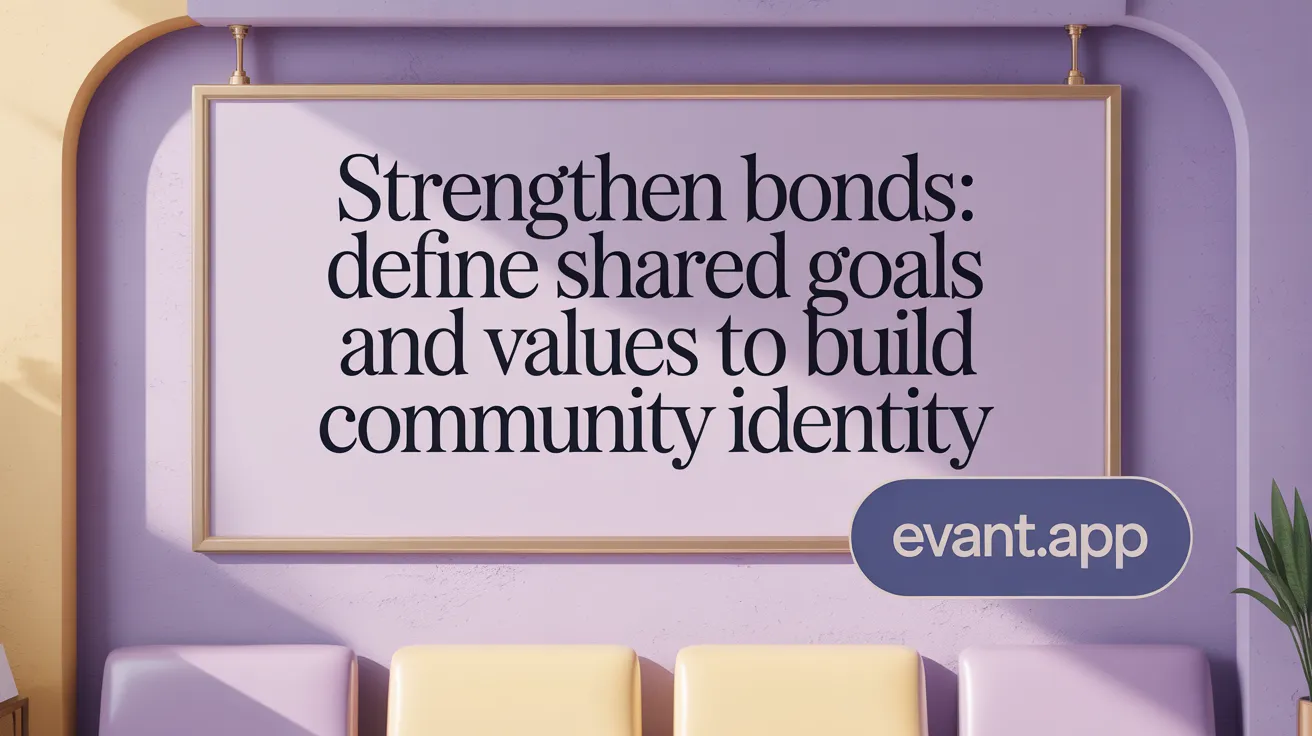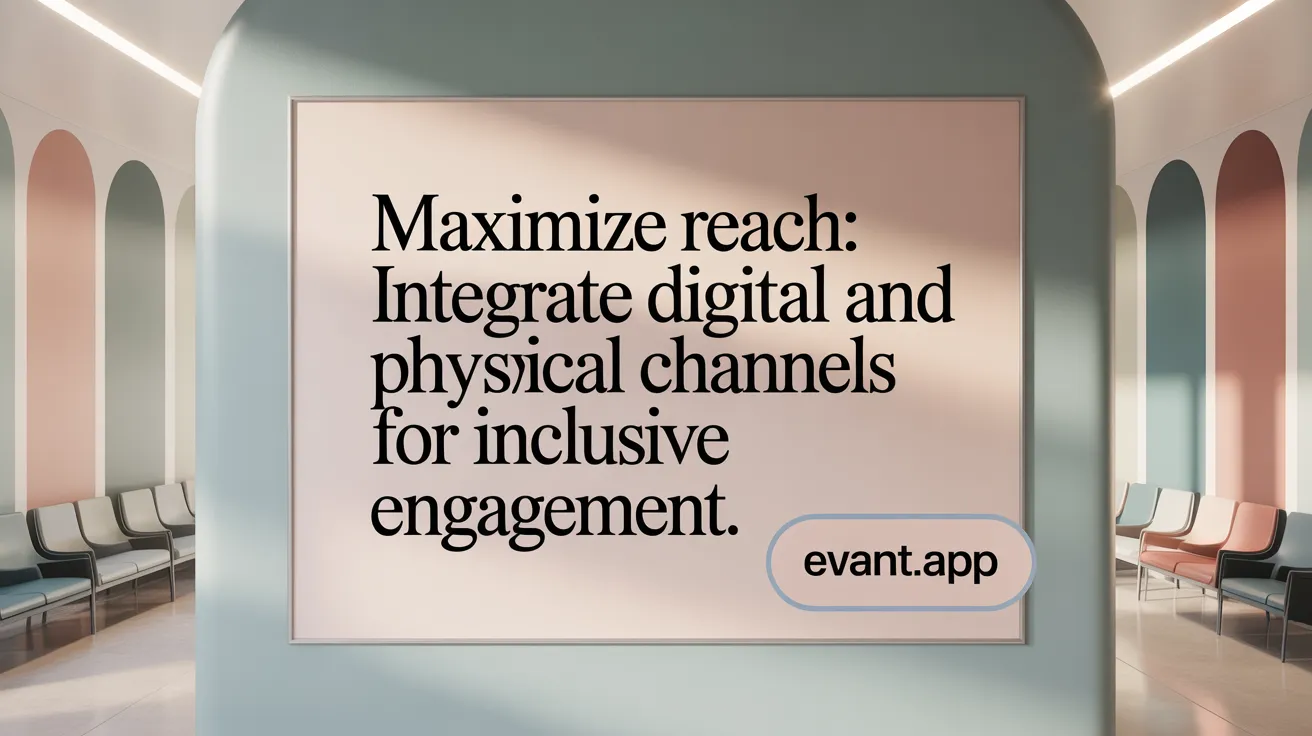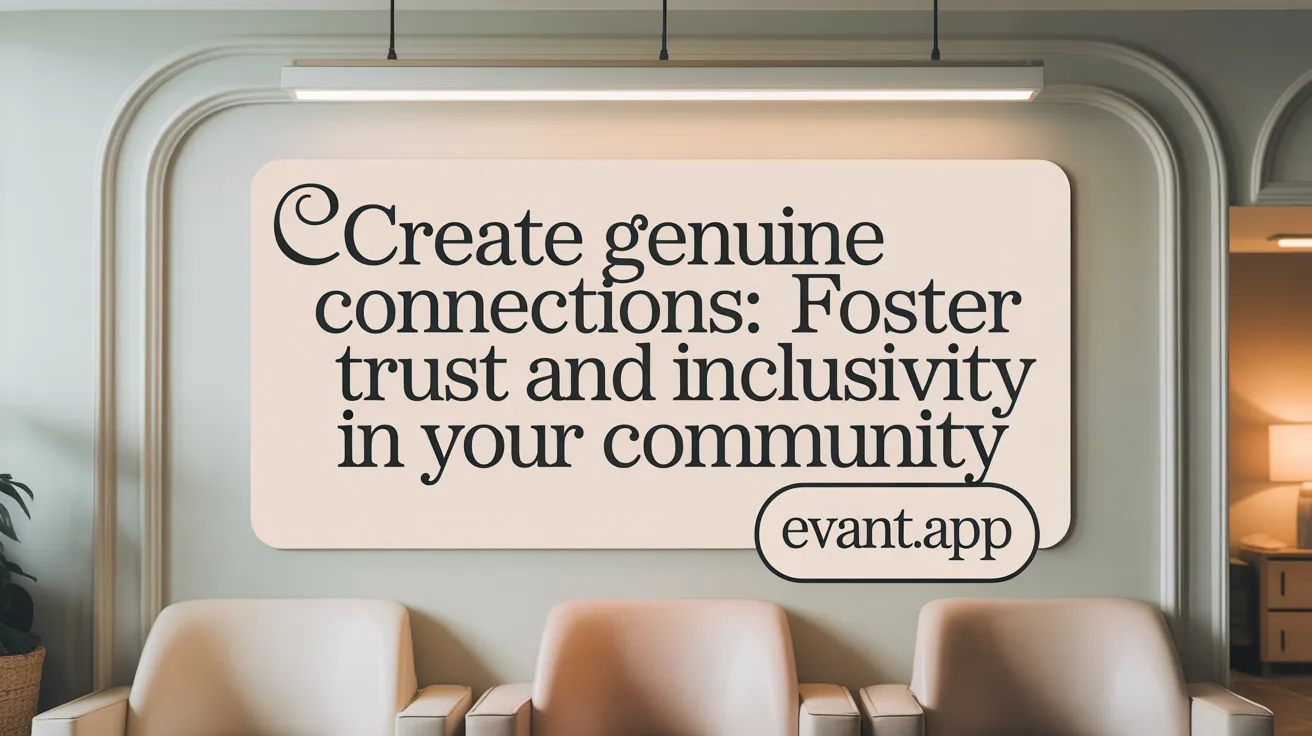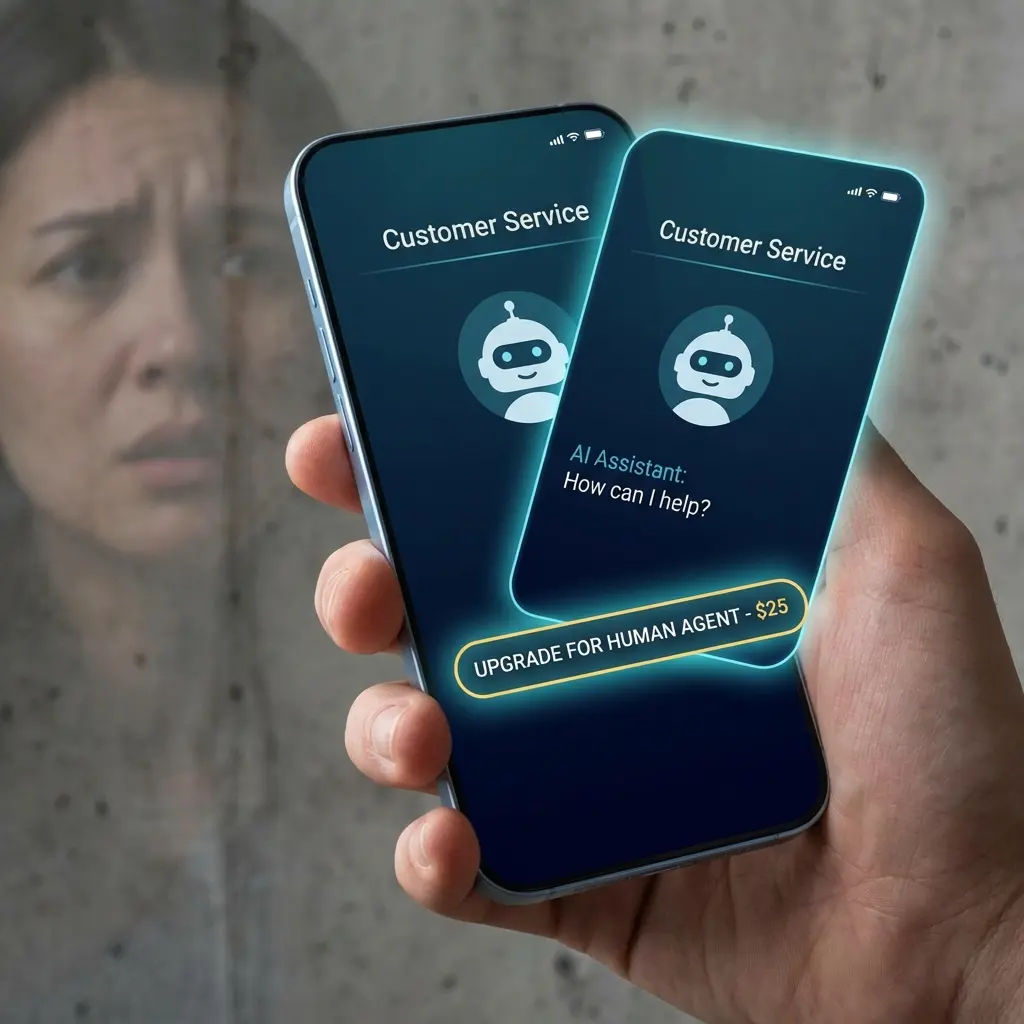Personalized Messaging Techniques for Building Stronger Communities

Why Personalized Messaging is a Game-Changer for Community Building
In a world increasingly driven by digital connections, building and nurturing strong communities requires more than generic outreach. Personalized messaging emerges as a vital strategy, enabling organizations and brands to forge genuine, lasting bonds by tailoring communications to individual preferences, behaviors, and values. As engagement metrics soar and loyalty deepens through these bespoke interactions, understanding and mastering personalized communication techniques becomes essential for anyone dedicated to community growth and management.
Techniques to Personalize Messaging for Stronger Communities
What are effective techniques for using personalized messaging to build stronger communities?
Building a vibrant and loyal community relies heavily on personalized messaging strategies tailored to members' unique interests and needs. One of the most fundamental methods is audience segmentation. By dividing community members based on demographics, interests, and previous engagement behaviors, organizations can craft highly relevant messages that resonate deeply.
Modern tools like AI-powered personalization enhance this process by enabling dynamic interactions. Automation can deliver personalized greetings, recognize milestones such as anniversaries or participation levels, and follow up on events or activities. These touches foster a sense of individual attention and belonging.
Effective multi-channel communication also plays a vital role. Utilizing preferred platforms like SMS, social media, email, or community apps ensures messages reach members where they are most active. Integration of these channels allows ongoing dialogues through polls, feedback prompts, and direct responses, nurturing open and continuous engagement.
Trust and authenticity are maintained by using a friendly tone and demonstrating genuine interest in community members’ well-being. Ethical considerations, including respecting privacy and transparency, further solidify confidence and loyalty.
Measuring response metrics such as open rates, click-throughs, and feedback is crucial for refining messaging strategies. Regular analysis helps identify what works best and highlights areas for improvement.
Incorporating these techniques—targeted segmentation, adaptive AI tools, multi-channel outreach, genuine tone, and ongoing measurement—creates a personalized environment where members feel valued. This fosters stronger bonds, encourages active participation, and ultimately nurtures a close-knit, engaged community.
Centering Marketing Strategies Around Community Engagement
How can personalized marketing strategies be centered around community engagement?
Creating marketing efforts that truly resonate involves understanding the core values and behaviors of your community. Personalization goes beyond mere data; it requires genuine engagement by fostering authentic connections.
Effective strategies include utilizing online platforms such as social media groups and community portals where members can share experiences and provide feedback. Local events like meetups, webinars, and volunteer activities offer opportunities for face-to-face interactions, making the community feel seen and valued.
Brands that emphasize transparency and inclusion often see increased trust and loyalty. For example, involving community members in product development or highlighting authentic stories from users creates a sense of shared purpose.
Loyalty programs and dedicated brand communities further strengthen bonds by offering personalized rewards and fostering emotional attachment. Leveraging data and AI helps tailor communication, ensuring that content and offers align with individual preferences and community interests.
Building long-term relationships relies on consistent, authentic interactions that deliver mutual value. This might include educational content, support tools, or exclusive access to events, all designed to deepen engagement.
Ultimately, integrating insights about community values into personalized strategies not only increases relevance but also cultivates trust and loyalty, making the community a vital part of your brand journey.
Methods to Boost Engagement through Personalized Communication

What methods enhance community engagement through personalized communication?
Creating strong bonds within a community hinges on personalization. Tailoring content to meet individual preferences—like customized messages, event invitations, or recognition of milestones—makes members feel seen and valued. Celebrating personal achievements or contributions through recognition boosts participation and loyalty.
A strategic mix of online and offline channels broadens reach and caters to diverse member preferences. Digital methods such as email campaigns, social media interactions, and live streaming facilitate real-time engagement. Meanwhile, offline tools like flyers, posters, community events, and direct mail ensure that members with limited internet access are included.
Data analytics and artificial intelligence (AI) are powerful tools for understanding member behaviors and interests. This data-driven approach enables organizations to develop precisely targeted outreach strategies, fostering more meaningful interactions. For example, AI can recommend content or events aligned with individual member interests, increasing relevance.
Recognition plays a vital role in community involvement. Acknowledging members’ contributions through shout-outs or rewards encourages ongoing participation. Additionally, promoting user-generated content, such as testimonials or shared experiences, helps build a sense of shared ownership.
Focused spaces—both physical and digital—support deep dives into specific topics or interests within the community. These exclusive forums or discussion groups offer members a dedicated environment to express opinions and collaborate.
Consistent, transparent, and multi-channel communication is essential. Regular updates, honest dialogue, and synchronized messaging across platforms reinforce trust and keep members engaged.
Deploying these methods together results in vibrant, participative communities where members feel motivated, understood, and connected. By continuously applying personalized strategies, organizations can foster long-lasting relationships that support community growth and resilience.
Best Practices for Personalized Messaging in Community Management

How do understanding the audience and creating personas improve personalized messaging?
Deeply understanding your community’s demographics, behaviors, and preferences allows you to tailor your communication efforts effectively. Developing detailed user personas helps organizations craft messages that resonate, address specific needs, and foster stronger connections. For example, segmenting supporters based on activity levels or interests ensures that content feels relevant, increasing engagement and loyalty.
Why is authenticity and responsiveness vital in community messaging?
Authentic communication fosters trust and sets the foundation for long-lasting relationships. Using a genuine, human tone and responding promptly to community members’ inquiries or feedback shows they are valued. When members see real responsiveness and empathy, they feel more connected and are more likely to participate actively.
How can automation and privacy considerations enhance community messaging?
Automation tools, like scheduled messages or AI-driven responses, enable timely interactions such as celebrating milestones or sharing relevant updates. However, it’s crucial to respect community members’ privacy and data security. Using first-party data responsibly, providing transparent privacy policies, and giving members control over their information build trust and comply with data regulations.
What role does user-generated content play?
Encouraging members to share their stories, experiences, or feedback creates a sense of ownership and community. Highlighting authentic user-generated content, such as testimonials or event photos, not only enriches your community’s narrative but also inspires others to participate.
How do ongoing analysis and adaptation improve messaging strategies?
Regularly tracking engagement metrics—like open rates, click-throughs, and responses—helps identify what resonates most. Gathering feedback through surveys or conversations provides insights into community needs and preferences. Use this data to refine your messaging, ensuring it remains relevant, authentic, and valuable. Continual adaptation keeps the community vibrant and engaged, fostering sustained relationships.
Leveraging Social Direct Messaging for Community Growth

How can social direct messaging be utilized for personalized community growth?
Social direct messaging (DM) has become a powerful tool for organizations aiming to deepen community relationships. By sending tailored updates, event invitations, and feedback requests directly to supporters, organizations can make individuals feel recognized and valued. These personalized interactions encourage ongoing participation and strengthen the sense of community.
Segmentation is vital. By dividing supporters according to their activities, preferences, or engagement levels, organizations can deliver relevant messages that resonate more deeply. For example, a supporter active in volunteering might receive invites to upcoming events or content related to their interests, enhancing relevance.
Automation combined with a personal touch ensures scalability without losing authenticity. Automated messages can trigger based on supporter actions, but adding personalized notes or responses from staff maintains a human connection that builds trust.
Private and group DMs support real-time conversations. Private messages can offer direct support or feedback, while group DMs foster peer-to-peer support, discussions, and shared experiences, thereby reinforcing community bonds.
Consistency is crucial to build trust. Regular, predictable communication reassures supporters that their engagement is valued. Using digital tools to schedule and monitor outreach ensures steady interaction.
Measuring success involves tracking response rates, engagement levels, and message effectiveness. Analyzing these metrics helps organizations refine their strategies, scaling successful approaches to reach wider audiences.
Overall, social direct messaging, when used strategically and personally, can significantly enhance community growth by fostering authentic, ongoing connections among members and supporters.
Building a Community Identity to Strengthen Engagement

How do you define shared goals, values, and philosophies?
A strong community starts with clearly defining its core purpose and beliefs. Sharing common goals and values creates a sense of belonging, making members feel that they are part of something meaningful. These shared elements serve as the foundation for interactions and decision-making, encouraging active participation.
Why is a clear vision and SMART goals important?
Setting a clear vision along with SMART (Specific, Measurable, Achievable, Relevant, Time-bound) goals guides community efforts and organizational direction. It helps members understand what they are working towards, ensures progress can be tracked, and maintains focus on achievable outcomes.
How does trustworthy and accessible leadership foster loyalty?
Effective leaders who know the community’s goals and respond promptly build trust and confidence. Leadership that is approachable and transparent encourages members to engage actively, fostering loyalty and a sense of security within the community.
What roles do member participation and diverse opportunities play?
Engaging members through various activities—such as webinars, volunteer projects, social events, and networking opportunities—strengthens bonds. Offering diverse ways to get involved helps cater to different interests and encourages ongoing participation, creating a vibrant community.
How important is continuous collaboration and communication?
Regular interaction and open channels are crucial for maintaining engagement. Using digital platforms like community management software ensures members stay connected, collaborate on shared goals, and feel that their voices are heard.
| Aspect | Strategy | Benefits | Example Tools |
|---|---|---|---|
| Defining community purpose | Establish shared goals and values | Builds identity and loyalty | Community surveys, social listening |
| Setting goals | Use SMART criteria | Tracks progress, aligns efforts | Planning templates, dashboards |
| Leadership | Be approachable and transparent | Fosters trust and confidence | Regular updates, Q&A sessions |
| Member participation | Offer multiple engagement options | Increases involvement and satisfaction | Webinars, volunteer opportunities |
| Communication | Maintain open and ongoing dialogue | Enhances collaboration | Platforms like Glue Up, social media |
By focusing on these strategies, communities can create a resilient identity that not only attracts members but encourages active, meaningful participation. This foundation is essential for nurturing a sense of belonging and achieving shared ambitions.
Balanced Use of Online and Offline Communication Channels

How can community engagement utilize both online and offline communication channels?
Integrating online portals, email campaigns, and social media platforms enables organizations to reach supporters efficiently and at scale. Digital tools allow for targeted messaging, interactive content, and real-time engagement, making supporters feel connected and informed.
Offline channels such as flyers, signage, local radio, and print media are vital for reaching community members who may have limited internet access. These methods complement digital efforts by ensuring inclusivity and broad community coverage.
To maximize engagement across diverse audiences, organizations should consider multilingual and culturally inclusive content. This approach ensures messages resonate and are accessible to all community members, regardless of language barriers.
Bridging the offline and online worlds can be effectively done using QR codes on printed materials. When scanned, these codes direct supporters to online resources, surveys, or event registration pages, facilitating digital engagement and tracking.
Monitoring participation across all channels is crucial. Using tracking tools and analytics, organizations can measure engagement levels, assess which methods are most effective, and refine their strategies accordingly.
| Communication Channel | Examples | Benefits | Tracking Methods |
|---|---|---|---|
| Online portals, email, social media | Newsletters, Facebook, Instagram | Immediate, targeted engagement | Email open rates, click-through rates, social media analytics |
| Offline flyers, signage, radio, print | Community bulletin boards, local radio ads | Wide reach, inclusive of those with limited internet | QR code scans, survey responses, attendance at physical events |
| Multilingual content | Translated materials, multilingual videos | Increased inclusivity and understanding | Engagement metrics per language, feedback surveys |
| QR codes on offline materials | Printed brochures, posters | Bridge offline to online interactions | QR scans, subsequent online activity |
By combining these communication channels thoughtfully, organizations can foster a well-connected, inclusive, and engaged community that effectively moves towards shared goals.
Authenticity, Inclusivity, and Added Value in Community Building

How does understanding the audience through research and social listening enhance community building?
Deep understanding of the community's demographics, preferences, and behaviors is foundational for effective engagement. Utilizing tools like social listening and research helps brands identify what matters most to their members. By analyzing conversations online and offline, organizations can uncover shared interests and concerns, enabling more targeted and relevant interactions.
How can brands align their messaging with core community values?
Aligning messaging with a community’s core principles requires clarity about the community’s goals, values, and mission. This involves crafting authentic communications that reflect these principles, ensuring that every touchpoint resonates with members' beliefs. Social listening and research help in understanding these values, allowing brands to create messages that foster trust and loyalty.
What strategies create spaces where people feel seen and understood?
Creating inclusive spaces involves offering opportunities for active participation, such as webinars, social events, and volunteer activities. Personalization through tailored content and direct engagement, like social media responses that reference prior interactions, makes community members feel valued. Digital platforms like Glue Up facilitate private, secure interactions that foster genuine connections.
How does supporting user-generated content and authentic stories impact community engagement?
Encouraging members to share their experiences helps build authenticity and trust. User stories and content reflect real perspectives, making the community more relatable. Brands highlighting these stories demonstrate genuine involvement and support, inspiring others to participate actively.
What types of value beyond products or services can deepen community bonds?
Offering educational resources, support tools, or exclusive access to events adds substantial value. Sharing relevant content and tools that help members achieve personal or professional goals fosters loyalty. Providing value beyond transactions creates a sense of partnership and shared purpose.
Can you give examples of leading brands successfully employing integrated community strategies?
Brands like Glossier and Starbucks excel by fostering two-way dialogues, supporting user-generated content, and creating local community spaces. These companies combine online engagement with physical events, aligning their messaging with core values of authenticity and inclusivity. Their strategies demonstrate how integrated efforts build strong, active communities.
| Strategy | Example | Additional Detail |
|---|---|---|
| Deep audience understanding | Social listening tools | Analyzing social conversations for insights |
| Aligning messaging with values | Core value messaging | Crafting authentic, purpose-driven communications |
| Creating inclusive communities | Events, digital platforms | Offering diverse participation options |
| Supporting user stories and UGC | Customer testimonials | Authentic content sharing to build trust |
| Providing added value | Educational content | Tools, resources, and exclusive experiences |
| Leading brand examples | Glossier, Starbucks | Integrated strategies combining online and offline engagement |
Through these approaches, organizations can craft community strategies that are genuine, inclusive, and rich in value, fostering long-term loyalty and vibrant connections.
Crafting Meaningful Connections Through Personalized Messaging
Personalized messaging stands at the heart of building stronger, more engaged communities. By understanding and respecting individual preferences, values, and behaviors, organizations can design authentic, inclusive, and impactful communication strategies that foster trust and lifelong loyalty. Integrating technology with human warmth—through segmentation, AI-powered personalization, and consistent social direct messaging—unlocks the potential to transform one-off interactions into ongoing relationships. Coupled with a clear community identity, balanced communication channels, and genuine value creation, personalized messaging techniques become essential tools for cultivating vibrant, resilient communities where members feel truly seen and connected.
References
- Building Connections: The Power of Personalization
- 4 Communication Strategies to Expand ...
- Quiet Power: Building Nonprofit Communities via Social DMs
- Top Strategies for a Stronger Community Management
- 4 Marketing Tips to Build Relationships, Community, and ...
- Building a sense of community with personalized messages
- Four Tips to Personalize Text Messaging Campaigns
- 6 Effective Civic Community Engagement Strategies
- How to Personalize Outreach at Scale? - Woodpecker
- Proven Tactics & Examples For Community Based ...
Related Blogs


How Community Churches Should Leverage SMS to Boost Engagement
Michael PedoeemStruggling with low church attendance? Discover how to leverage SMS to reach 98% of your congregation instantly and review the top 5 church communication platforms.


SMS for Churches: A Guide to Better Engagement
Michael PedoeemLearn how SMS for churches can boost engagement, improve communication, and streamline event management. Discover best practices for church texting today.
Ready to transform your community









